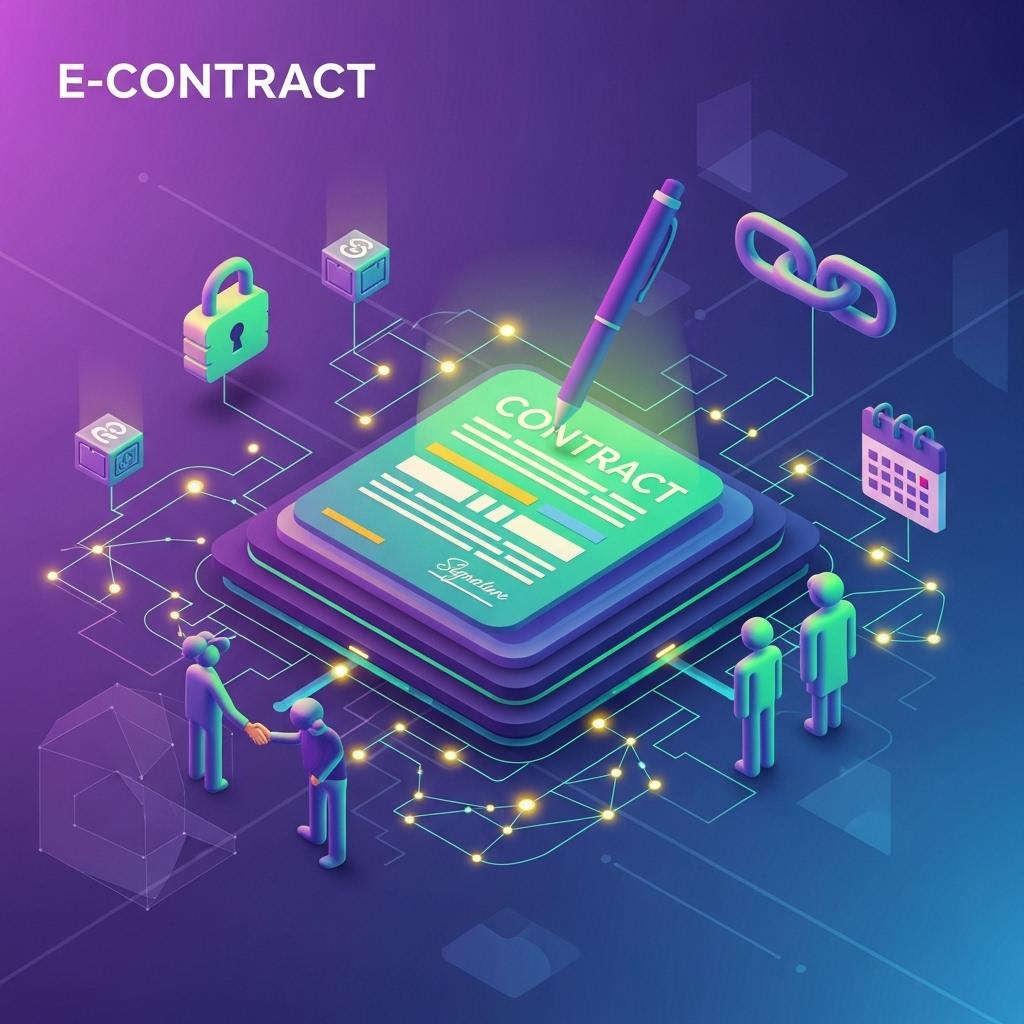Practical Guide to Electronic Contracts: When to Use and What to Watch For
A complete guide on how and when to use electronic contracts, the legal framework under Vietnam’s Law on Electronic Transactions, and how Kyta Platform ensures security and compliance.
Oct 10 ,2025 - min readAs digital transformation accelerates across industries, electronic contracts (e-contracts) have become increasingly common in everyday business operations. This article outlines when to use them, when not to, and the legal considerations businesses should keep in mind.

Do Electronic Contracts Have Legal Validity?
According to Vietnam’s Law on Electronic Transactions 2023 (effective from July 1, 2024), electronic contracts carry the same legal weight as paper contracts if the following conditions are met:
-
Parties have full legal capacity and consent voluntarily
-
The contract content complies with the law and social ethics
-
Data integrity is ensured (i.e., content remains unchanged from creation to storage)
Kyta Platform safeguards legal validity by using end-to-end encryption, tiered storage, licensed digital signatures, and trusted timestamping — ensuring legal admissibility in court.
5 Common Scenarios for E-Contract Usage
1. Trade & Services
-
Product sales (B2B, B2C, e-commerce)
-
Service provision (marketing, software outsourcing, training, etc.)
-
Nationwide agency or distribution contracts
-
Logistics and delivery agreements
2. HR & Employment
-
Remote signing of labor or probation contracts
-
NDAs and salary/bonus adjustments via contract appendices
3. Finance, Banking & Insurance
-
Opening bank accounts or e-wallets via eKYC
-
Consumer loan and credit card contracts
-
Online insurance contracts (life, health, vehicle)
4. Real Estate
-
Deposit or reservation contracts
-
Brokerage agreements
-
Lease agreements for homes or office space
⚠️ Note: Real estate transactions involving ownership transfer or mortgages still require notarization or official certification.

5. Civil Transactions
-
Personal loan agreements
-
Service handover or acceptance reports
-
Cooperation agreements between parties
When NOT to Use Electronic Contracts
Under Article 8 of the Law on Electronic Transactions 2023, the following cannot be executed using electronic methods:
1. Transactions that require notarization or certification
-
Transfer or mortgage of real estate
-
Wills or inheritance documents
-
Power of attorney for real estate management
2. Government-issued identification and official papers
-
Birth, death, marriage, or divorce certificates
-
National ID, household registration
-
Promissory notes and other negotiable instruments
3. Industry-specific legal requirements
-
Sectors that require physical documentation under specialized laws

Frequently Asked Questions (FAQ)
Can e-contracts be used as evidence in court?
Yes. As long as the contract’s integrity and authenticity are maintained, it is legally equivalent to a paper contract during litigation.
How should e-contracts be stored securely?
It’s best to use a dedicated platform like Kyta Platform, which offers:
-
Centralized, loss-proof storage
-
Tamper-proof post-signature protection
Kyta Platform – Legal and Technological Assurance for E-Contracts
Kyta Platform delivers an end-to-end e-contract solution:
-
Instant contract execution via FPT.eContract
-
Legally recognized eSignatures/digital signatures
-
AI-powered clause extraction and obligation tracking
-
Secure storage, full audit trails, and auto-generated reports
